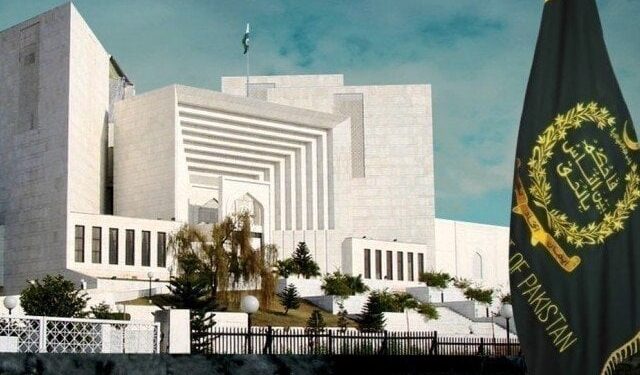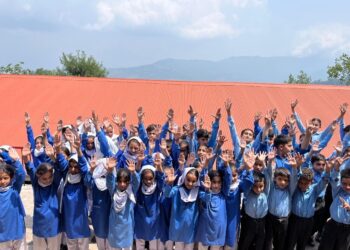ISLAMABAD – July 2025: In a significant administrative update from the apex court, the Supreme Court of Pakistan has released the official judges roster and cause list for the upcoming week, announcing the formation of four judicial benches to conduct hearings. This rotation includes the notable development that Chief Justice of Pakistan (CJP) Justice Yahya Afridi will preside over hearings at the Quetta Registry, marking an important visit to the provincial registry of Balochistan.
This move not only reflects the Supreme Court’s commitment to judicial access and regional representation but also underscores the importance of Quetta in the court’s calendar as part of its circuit sitting system.
📜 Supreme Court Weekly Cause List: Structure and Bench Allocations
The Supreme Court’s weekly cause list, which is a schedule outlining the details of upcoming court proceedings, was officially published on Friday. The judicial roster defines the benches constituted for week commencing Monday, and identifies the location and composition of each bench.
According to the official notification, the court will operate from two main locations:
- Principal Seat in Islamabad
- Supreme Court Branch Registry in Quetta
➤ Summary of Bench Allocations:
- Islamabad: Two benches to hear regular and constitutional cases.
- Quetta Registry: Two benches including one led by the Chief Justice.
⚖️ Chief Justice Yahya Afridi to Head Bench in Quetta
In a rare but strategically significant move, Chief Justice Yahya Afridi will personally head a Supreme Court bench in Quetta, signaling the court’s focus on extending judicial oversight beyond the federal capital. He will be joined by Justice Shakeel Ahmed to form the first bench at the Quetta Registry.
This visit carries symbolic and practical weight, particularly in light of the pressing legal and constitutional issues emerging from Balochistan, such as land rights, natural resource disputes, development challenges, and security-related constitutional petitions.
The second bench at the Quetta Registry will consist of:
- Justice Jamal Khan Mandokhel
- Justice Musarrat Hilali
Both justices have significant experience dealing with cases from the region, and their presence is expected to add contextual depth to the proceedings.
🏛️ Benches at Supreme Court Islamabad: Focus on Complex Legal Matters
At the Principal Seat in Islamabad, two other benches have been formed to hear important cases in the upcoming week.
Bench 1:
- Justice Mansoor Ali Shah
- Justice Muneeb Akhtar
- Justice Ayesha Malik
This bench is expected to hear a variety of civil, constitutional, and human rights cases, including matters relating to:
- Federal service laws
- Environmental issues
- Taxation appeals
- Public interest litigation
The presence of Justice Ayesha Malik, Pakistan’s first female Supreme Court judge, in this bench is particularly notable for ensuring gender-balanced jurisprudence in the apex court’s decision-making process.
Bench 2:
- Justice Sardar Tariq Masood
- Justice Mazhar Alam Miankhel
This bench is likely to focus on criminal appeals, bail petitions, and anti-corruption references. Both justices have a long history of adjudicating high-profile legal matters involving NAB (National Accountability Bureau) cases and other white-collar crimes.
🏞️ Significance of Circuit Benches: The Role of the Quetta Registry
The Supreme Court Registry in Quetta plays a pivotal role in ensuring that litigants in Balochistan do not have to travel to Islamabad to seek justice. Circuit sittings in cities like Quetta, Karachi, Peshawar, and Lahore allow for better regional accessibility, particularly for underrepresented and marginalized communities.
The decision of the Chief Justice to lead the bench in Quetta this week reflects a broader judicial philosophy of inclusivity and outreach, ensuring that the country’s top court is accessible to all provinces, not just the federal capital.
Importance of Registry Hearings:
- Encourages participation of local bar councils
- Reduces litigation costs for distant residents
- Ensures better understanding of provincial contexts
- Enhances public trust in the judicial system
🔍 Focus Areas: Types of Cases Likely on the Docket
Although the exact cause list (i.e., the detailed list of cases) has not been released to the public, it is expected that the Quetta benches will hear a mix of the following types of cases:
- Land acquisition disputes
- Mineral rights and provincial resource revenue
- Public interest petitions regarding infrastructure development
- Challenges to provincial administrative actions
- Law and order-related appeals
Similarly, Islamabad benches may handle:
- High-profile constitutional interpretation cases
- Election-related legal challenges
- Inter-agency disputes involving federal ministries
- Appeals from the Islamabad High Court and federal tribunals
📚 Institutional Context: Supreme Court of Pakistan and Bench Rotation
The Supreme Court of Pakistan is the highest judicial authority in the country, responsible for interpreting the Constitution, enforcing fundamental rights, and acting as the final appellate court in civil and criminal matters. Under its administrative framework, the court operates through benches composed of different justices, which rotate periodically and are often geographically distributed.
This rotation serves multiple purposes:
- Distributes the workload evenly among justices
- Ensures expertise is matched with case type
- Promotes broader judicial access to the population
In addition to the principal seat in Islamabad, the Supreme Court also functions through branch registries in Lahore, Karachi, Peshawar, and Quetta, where regional cases are heard, particularly when the Chief Justice deems it necessary to convene sittings outside the capital.
🧑⚖️ Profiles of Key Justices Assigned This Week
➤ Chief Justice Yahya Afridi
Appointed as the Chief Justice of Pakistan in 2024, Justice Afridi is known for his legal scholarship, integrity, and commitment to judicial independence. His leadership style emphasizes transparency, legal innovation, and access to justice.
➤ Justice Mansoor Ali Shah
An advocate for environmental justice and judicial reforms, Justice Shah has authored numerous landmark judgments related to climate change, constitutional law, and civil liberties.
➤ Justice Ayesha Malik
Making history as Pakistan’s first woman to sit on the Supreme Court bench, Justice Malik has significantly contributed to gender justice, children’s rights, and legal education reform.
➤ Justice Jamal Khan Mandokhel & Justice Musarrat Hilali
Both justices have served in various high courts and bring a strong understanding of provincial law and its intersection with federal mandates.
🗣️ Reactions from the Legal Community
Legal experts and bar associations have welcomed the release of the weekly judicial roster, particularly the visit of the Chief Justice to Quetta, noting that such outreach is essential for bridging the trust gap between the judiciary and the people of Balochistan.
Speaking to reporters, a member of the Balochistan Bar Council stated:
“This is a commendable move by the Supreme Court. The presence of the Chief Justice will send a powerful message to the people of Balochistan that their grievances are heard and that the Supreme Court is committed to providing justice irrespective of location.”
⏰ Conclusion: Strengthening Judicial Access Through Regional Engagement
The formation of four Supreme Court benches for the upcoming week, including the deployment of the Chief Justice to Quetta, signals a strong commitment to judicial inclusivity, regional representation, and accountability. By conducting circuit hearings at the Quetta Registry, the Supreme Court reinforces the message that justice is not confined to Islamabad—it is a right accessible to all citizens, regardless of where they reside.
As the court prepares to tackle important legal matters across its benches, the public and legal professionals alike will be watching closely to assess the effectiveness of this judicial outreach. With balanced bench compositions and thoughtful leadership, the upcoming week is set to be a meaningful chapter in the Supreme Court’s mission to uphold justice, equality, and constitutional supremacy across Pakistan.

























